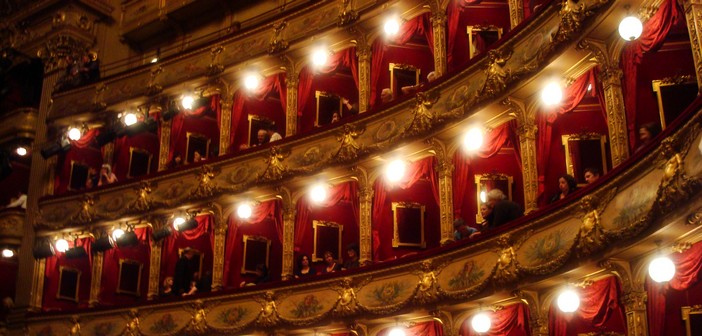In the conclusions of its report (2014), the Regional Chamber of Accounts also criticized the management of the Nice municipal opera, “whose annual budget is around 22 million euros, an amount equivalent to the total operating expenses of a municipality with 10,000 to 15,000 inhabitants in the Alpes-Maritimes.”
However, the report states that “the activity (about a hundred performances) and attendance of the opera (around 55,000 spectators per year) are relatively low, placing it in the middle of the ranking of French operas.” “Ticket sales revenues are marginal, with the municipality accounting for 85% of the opera’s income and the Alpes-Maritimes department approximately 8%,” the report continues.
Yet, the opera has “among the most significant” resources in France: it is staffed with 350 employees, including 170 artists, and has a production center with 80 technicians, allowing for full control of the production chain of a lyrical work.
Following this rather damning report (did nobody in Nice notice this dysfunction?), a new general director* was called to the sickbed, who will have to undergo some bleedings to rebalance the management accounts but above all needs a clear strategy.
We asked city councilor Gaël Nofri, one of the few who knows what he is talking about regarding “serious music,” to express his views.
“The report of the Regional Chamber of Accounts presented to the Nice City Council on February 5 allowed us to address the thorny issue of the Nice Opera. Indeed, in its report, the Regional Chamber of Accounts devotes more than a third of its content to the cultural institution, denouncing its cost, attendance, organization, and even its raison d’être. Nice is said to be too small a city, lacking a cultural audience and the prestigious status of a regional capital, to hope to have a quality opera.
Our group has been raising questions for several months about the organization chart, decision-making process, and artistic choices of the Nice Opera—both in the City Council and in the opera’s operating board—because we intend, on the contrary, to push the opera to progress, to challenge itself, and ensure its development and sustainability.
For several decades, various administrations have considered it the role of the fifth-largest city in France, the second tourist destination in the country, to have an ambitious cultural policy.
This ambition has been notably conveyed through substantial support for the opera and its scenery and costume workshops at the Diacosmie. It’s a cultural and tourist asset that enriches the image and influence of our city, particularly through the productions and co-productions implemented by the opera. We do not recognize the judges’ right to assess the appropriateness of such a policy, and we do not accept that the Chamber, from Marseille, demotes the City of Nice to the status of a mid-sized provincial town and presumes to impose a cultural policy worthy of Romorantin or Fleury-sur-Orne.
The Regional Chamber seemingly finds it normal that neither the Region nor the State contributes any public money to the Nice Opera. Yet, I would like to remind you that these two absences place the entire burden of the opera’s public funding on the City-Department duo. Public funds represent around 90% of the Nice Opera’s income (85% on average in other French operas).
How, then, can we be surprised that the City of Nice alone shoulders the financing of 18.3 million euros when it is known that the Region and State provide an average amount of 10 million euros to subsidized operas?
The essential point we must keep in mind is that Nice, the fifth-largest city in France, is only sixth in terms of budget allocated to the opera, which is not scandalous at all.
The arrival, voted on at this same Council, of a new director* for the Nice Opera is an opportunity to tackle the real issues that still remain: excessive fees for certain concerts, the number of invitations, increasing ticket revenue, program balance…
It is also an opportunity to remind the magistrates of the Regional Chamber of Accounts of their mission: to assess management and not the appropriateness of a policy… even if it is a cultural policy!”


